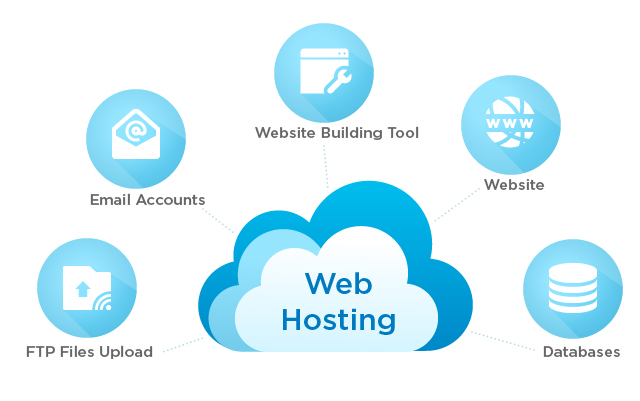Regular Misconceptions Regarding Cloud-based Online Hosting
Recently, cloud hosting has appeared as a favored option for companies and users looking to establish a powerful online presence. Yet, with its increase in fame comes a number of myths that can cause to misunderstanding and hesitation among potential users. Numerous people may not entirely understand the real value that cloud web hosting services can provide, typically disregarding the advantages it offers to website functionality, scalability, and security.
One typical misconception is that cloud hosting is only suitable for big enterprises with considerable budgets. In fact, cloud web hosting can be an outstanding choice for websites of every sizes, offering flexibility and value that traditional hosting options may not provide. By dispelling these myths, we can help users make wise decisions and realize the complete potential of cloud hosting for their digital efforts.
Myth 1: Cloud Hosting is Invariably Expensive
A most persistent fallacies about cloud hosting is that it is synonymous with a significant price tag. While it's true that some cloud services can be expensive, there are various options available that fit varied budgets. Many providers offer flexible pricing structures, including pay-as-you-go models that allow businesses to adjust their resources in line with their true usage. This means that startups can access powerful cloud hosting solutions without straining their finances.
Furthermore, cloud hosting often provides benefits that surpass the upfront costs. Features such as automatic backups, enhanced security, and high availability can dramatically lower the potential costs related to system outages or data loss. This makes choosing cloud hosting a cost-effective choice in the long run, especially for businesses that are centered around their online presence. When considering costs, it is crucial to consider the comprehensive value offered rather than just the initial cost.
Additionally, many cloud hosting providers offer a selection of plans and promotions that can make their services available to a wider audience. By contrasting different options and taking advantage of any available offers or trials, businesses can identify cloud hosting solutions that fit their financial constraints without compromising on performance or reliability. This helps to dispel the myth that cloud hosting is exclusively for companies with high financial resources, making it a viable option for numerous businesses.
Myth 2: Cloud Hosting is Exclusively for Big Businesses
Many people assume that cloud hosting is primarily intended for large businesses with extensive resources. This belief originates from the prominence that large corporations have when they utilize sophisticated technologies. In truth, cloud hosting is versatile and can be customized to meet the needs of businesses of various sizes, including minor and mid-sized enterprises.
Small businesses can significantly gain advantages from cloud hosting's scalability and adaptability. With cloud services, they can easily adjust their resources as their needs evolve, without having to invest in expensive infrastructure. New businesses and lesser companies can access powerful hosting capabilities, enabling them to compete with larger organizations without a substantial price tag.
Additionally, the reasonableness of cloud hosting solutions makes them an attractive choice for lesser businesses. Cloud providers present various plans that fit varied budgets, making it feasible for even the least organizations to utilize these strong web hosting services. Therefore, the idea that cloud hosting is only beneficial for big companies is merely untrue.
Myth 3: Cloud Hosting Guarantees Absolute Uptime

Many people hold the notion that cloud hosting solutions come with an ironclad promise of total uptime. This fallacy arises from the sophisticated infrastructure and redundancy that cloud providers offer. Although web hosting uae can significantly lower downtime compared to legacy hosting, it cannot totally eliminate it due to potential factors outside the provider's control, such as network issues or software failures.
In practice, reputable cloud hosting providers typically offer uptime guarantees in their contract terms, often around ninety-nine point nine percent. This means that there may yet be a limited amount of downtime each year. Customers should realize that while the technology is designed to be resilient, no system can be flawless. Periodic servicing and unexpected events can still lead to outages.
It is important for businesses to evaluate their specific needs and have practical expectations regarding system reliability. Rather than pursuing absolute guarantees, they should prioritize on providers with a strong track record of reliability, fast response times, and responsive customer support to mitigate the impact of any potential downtime.